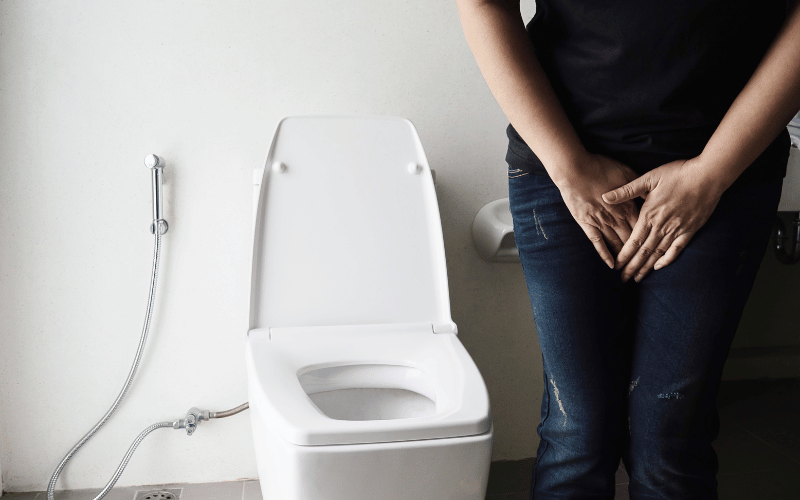14. Nocturia: Night-time Trips to the Restroom

It might seem unrelated, but frequent trips to the bathroom during the night, known as nocturia, can be directly tied to OSA. While it’s common to need a restroom break during the night occasionally, constant interruptions can signal a deeper issue.
So, how does a sleep-breathing disorder influence urinary habits? When breathing stops during an apneic event, pressure in the chest increases due to efforts to breathe against a closed airway. This pressure is transmitted to the heart, which then senses an increased blood volume, leading it to produce a hormone (atrial natriuretic peptide) that results in increased urine production.
This chain of events not only disrupts sleep due to the need to urinate but also exacerbates sleep fragmentation, which is already a problem in OSA. This symptom can further degrade sleep quality and make it even harder for someone to achieve restful sleep.
For many, frequent night-time trips to the bathroom are brushed off as a result of age or a weak bladder. However, when seen alongside other OSA symptoms, nocturia can be a significant hint toward the underlying sleep disorder. (14)